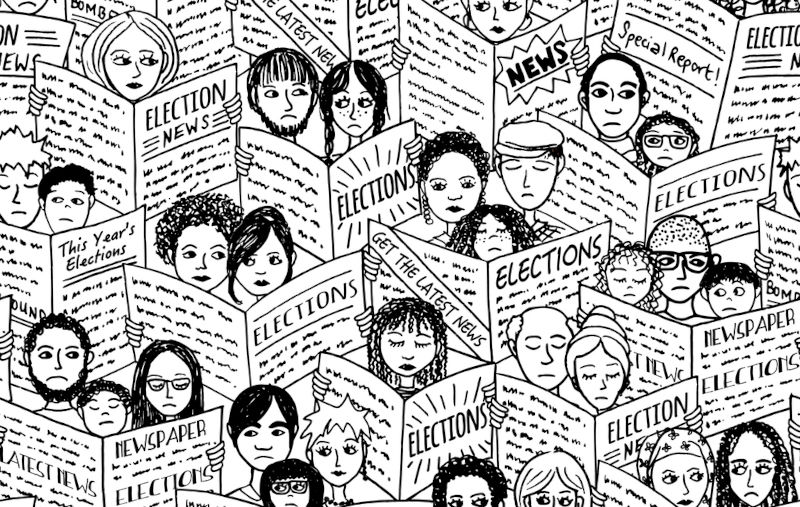The great political crossover: the concept of elections as sporting contests has finally broken down
Dec 4, 2022
Education levels and cultural affinities rather than income and economic security are becoming the major determinants of how people vote, and whether they define themselves as progressive or conservative.
The French economist Thomas Piketty in his very important book Capitalism and Ideology (Harvard, 2020) analysed voting patterns in the United States, the United Kingdom, France and Australia.
For decades the poor voted for radicals and the affluent and aspirational voted conservative. Now this is changing.
In the UK in 2015 many of the poorest electorates voted to leave the European Union, of which they knew little, while the most affluent and productive voted to remain.
In the US in 2020, Donald Trump won an overwhelming majority of the poorest counties and Joe Biden won the best educated and most affluent.
Australia’s most significant social, economic, cultural and political division is no longer between the traditional political parties but between graduates v. non graduates, at present about a 50/50 split among voters.
Tertiary educated professionals, many with high incomes, are becoming radicalised.
Blue collar workers, especially self-employed tradies, are becoming more conservative.
Surgeons in Malvern were becoming more radical and carpenters in Ringwood were becoming more conservative.
The same sex marriage plebiscite in 2017 was a striking indicator of this crossover. Kooyong had a ‘Yes’ vote of 73.7% (with 86% participation) and Labor 56.8% (77% participation). Almost alI the seats with a ‘No’ majority were very safe for the ALP.
In the 2019 election, Labor’s advocacy of taxation reforms led to significant swings towards it in high income electorates such as Higgins or North Sydney but it lost ground in seats with a lower SES.
Seats with the highest proportion of graduates had these priorities:
- Climate change
- Global perspectives
- Taking a long term view
- Taxation reform
- Integrity and accountability
- Gender equality
- More compassionate policies on refugees
- Support for Indigenous recognition
- Open government
- Protecting institutions – Commonwealth public service, universities, CSIRO, the ABC, museums, art galleries
- Following the science on Covid
- Support for the arts and culture
In seats with lower proportions of graduates, priorities were:
- Cost of living, especially food, housing, heating and cooling
- Concerns about transition to a post carbon economy
- Anxiety about fuel costs and vehicle replacement
- Maintaining existing employment patterns
- Ending Covid restrictions
- Local infrastructure
- Job security
In the US, Donald Trump had been extraordinarily effective in harvesting the rage of angry white males. This had several elements: the disappearance of many traditional work forms, the threat to patriarchy by feminist activism, the speed of technological change. Elites were attacked as condescending for using evidence, statistics, expertise to tell people how they should live, including eating, drinking, gambling, entertainment, what vehicles they should drive, waste disposal, having greater respect for women and girls, restricting gun ownership, and how they understood and interpreted the world. There was also ‘dog whistling’ on race, refugees and ‘the Other’ generally.
Trump had some impact in Australia – essentially on the fringes, with angry, alienated voters, perhaps up to 10 percent. But in a close election contest, that 10 per cent can be decisive.
Opinion and feeling has become more powerful than evidence and experience, witness the powerful reaction by anti-vaxxers and climate change denialists. Reliance on social media as the principal source of information creates an ‘echo chamber’ effect, with a unique capacity to spread misinformation, unchallenged.
The Federal election of 21 May 2022 did more than bring about a change in government with the defeat of the Coalition, it challenged the duopoly of the two major hegemonic parties, which are both under threat. They have become inward looking, faction ridden and resentful of criticism.
The Liberal Party had its lowest primary vote since 1946, the ALP since 1934.
The concept of elections as analogous to sporting contests, where only two teams can play in the grand final, has broken down.
The most encouraging sign is that professionally qualified people who used to be disengaged and voted with pegs on their noses, are now playing an active role – recognising that existing hegemonic parties have a very small, moribund, faction driven, membership.
Voters proved to be more interested in the destination than the vehicle and put far more emphasis on seeking solutions to ‘wicked problems’, such as climate change, corruption and integrity, gender issues, foreign policy and national identity. The issue of securing an adequate taxation base for the long term was evaded.
On climate change, the combination of ALP, Greens, teal and rust independents secured more than 60 per cent support for effective action and destroyed the veto power of the National Party, with 6.2 per cent of the national vote.
‘Freedom’ and Secrecy
‘Freedom’ has been used as a rallying cry by dissenters who rage against the concept that political, economic and social decisions ought be based on evidence, analysis and reasoned debate, and assert that private judgment, essentially based on feeling and opinion should have priority. Laws, regulations or court decisions based on evidence or expertise are rejected as elitist, repressive and denying basic personal liberty, the freedom to insist that 2+2 = 5.
Freedom to deny the reality and threat of climate change.
To deny that that Covid exists and to reject vaccines, masks and social distancing, freedom to infect others, to promote fake remedies.
Freedom to abuse people, face to face or through social media, on the basis of gender, sexuality, language, race, culture.
Freedom to choose one’s own reality (for example to reject US election results).
To propagate one’s own facts. As Daniel Patrick Moynihan insisted: ‘Everyone is entitled to her opinion, but not to her own facts’.
Freedom to ignore the needs of others.
Freedom to lie, to make stuff up, not to be accountable.
In recent years the only way to get a straight answer to a question has been through an ICAC/IBAC, Royal Commission or the courts.
Parliament, newspapers, journals, television, radio, public debate? Forget them.
Australia is the most secretive of all Western democracies – far more so than the US or UK. The appalling secret trial – now called off – of Bernard Collaery could never have happened in Washington or London. It was not for threatening national security but for causing national embarrassment and humiliation for exposing the appalling behaviour of a previous government in spying on a friendly state to profit an Australian company. Collaery was not allowed to know all the charges against him and even now he is forbidden to answer certain questions about the case.
Involvement in war is entirely secret in Australia – unlike the US, UK or Canada where the legislature is involved. But not here.
There are subjects we just don’t talk about – gambling, junk food, obesity, racism, increasing inequality. But we are opening up about domestic violence, suicide and mental health.
We are starting to talk more honestly about our history and the proposed referendum on ‘the Voice to Parliament’ is extremely important. It is possible that the total number of Indigenes killed in massacres and frontier wars is about equivalent to the deaths of Australian service personal in World Wars I and II, in Korea, Vietnam and Afghanistan.
The defeat of Trump and Bolsonaro and the removal of Johnson and Morrison are grounds for optimism – but the restoration of Netanyahu in Israel and Meloni in Italy are disturbing. Putin is unspeakable – and Xi Jingping is increasingly authoritarian.




